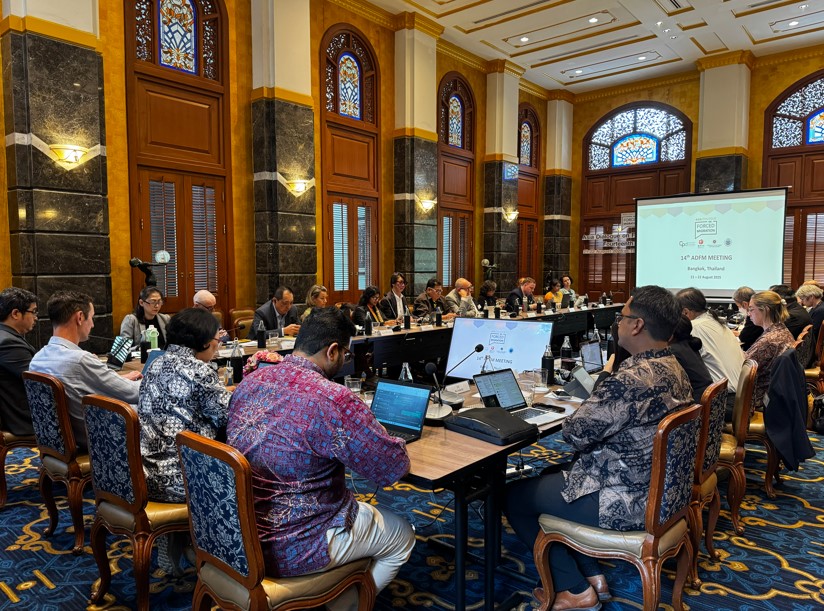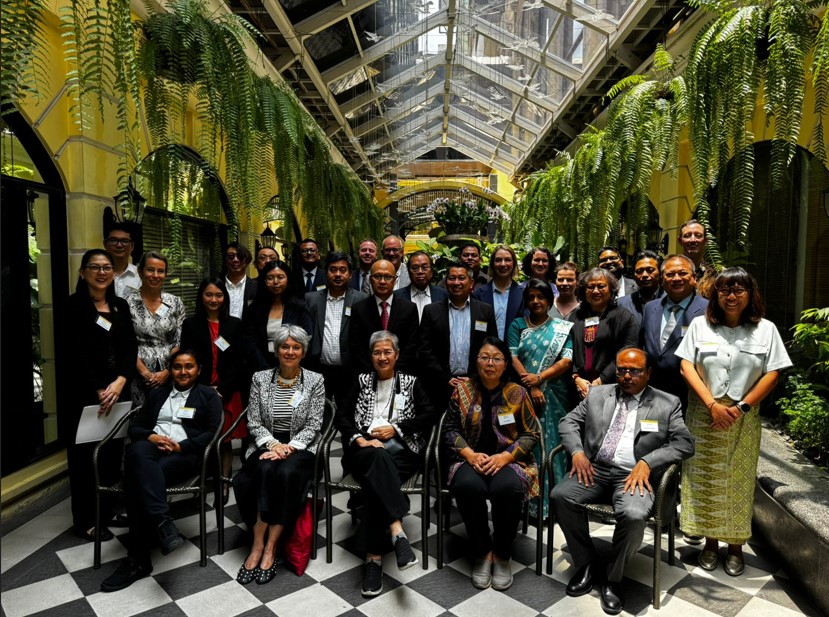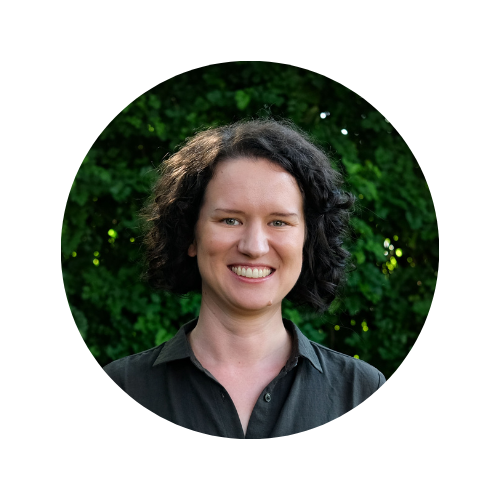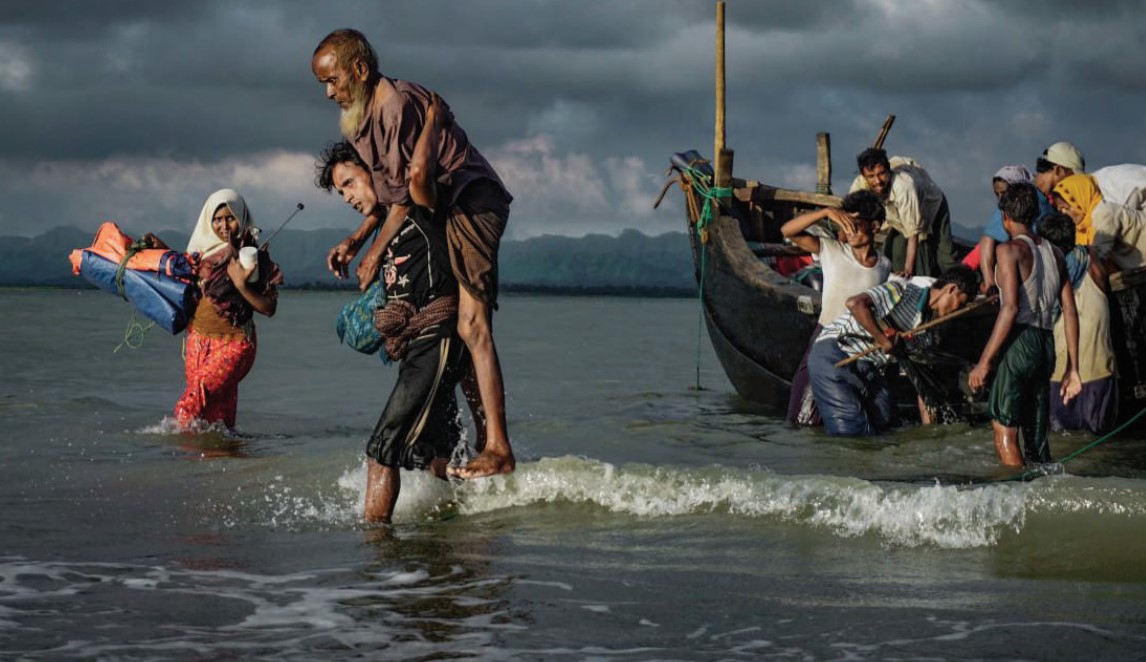In August 2025, senior government and non-government experts from 8 countries across the region came together to discuss the current, fragile state of refugee protection at the Asia Dialogue on Forced Migration (ADFM). This forum was set up ten years ago by four regional think tanks to advance collaboration on forced migration issues. It remains a leading forum for closed-door discussions on policy change.
A clear theme at the ADFM was how 2025 has seen a reckoning in the global refugee sector. Until this year, the United States provided about 40% of the UN’s global humanitarian budget and 30% of the refugee response globally. Now after major funding cuts from the US and other donors, UNHCR is projecting a shortfall of US $7.3 billion against a global budget of $10.6 billion. This shortfall equates to 11.6 million refugees and displaced people being at risk of losing direct assistance this year. Refugee-led and local organisations, which have also been crucial to frontline service delivery to refugees for decades, are likewise hugely impacted by these cuts.
On the other hand, the ADFM was also an opportunity to consider how this period of rupture may underscore the possibility of reshaping our system. A realm of options that were previously impossible suddenly seem possible. One key example discussed at the ADFM was the shift in policies in 2025 that allow refugees to work legally in host countries. For years, this policy area has been highly contentious in the Asia-Pacific and ongoing advocacy efforts from NGOs on both economic and humanitarian grounds have appeared to be getting nowhere. However, recent changes in Thai immigration policies have heralded a hopeful, new era for refugees and forced migrants that offers a win-win for both human rights and national security.
Leading changes from the Thai Government
The Asia-Pacific region lacks an agreed regional framework to protect refugees. In practice, this means that those on the move often live precarious lives: unable to work, study or provide for their families. Policies are often piecemeal and patchwork. The ADFM aims to build towards more predictable, established regional frameworks. Many ADFM participants have been working closely both inside and outside government for years to help achieve policy reform, including on the right to work for refugees.
One key policy shift that was discussed at the 2025 ADFM meeting was the resolution in August 2025 by the Thai Cabinet to allow long-term refugees living in the nine camps along the Thai-Myanmar border to work legally. While the implementation is still being finalised, once the policy is enacted it will benefit around 44,000 working age people and their families. It will empower people to live independently, pay tax, fill skills gaps and boost the Thai economy – which is already struggling to fill roles in its ageing population.
This move also came a few months after Thailand reformed its process for granting citizenship or permanent residency to those without legal status in the country, shortening it from 6 months to 5 days. This has been life-changing for 340,000 long-term residents and 140,000 of their children, allowing them to engage fully in society. This was the largest reduction in statelessness globally this year, and possibly ever.
While these policy reforms are at the national level, there is significant benefit in being able to discuss them in informal regional forums like the ADFM. It allows ideas to cross-pollinate, for other countries to ask questions and discuss details that might otherwise be sensitive in formal settings. It also allows donors and partners in the room to understand where they can best direct their financial or technical assistance.

Participants at the 14th ADFM Meeting in Thailand, Source: Centre for Policy Development
Empowering refugees is a win-win both for human rights and national security
A further topic discussed at the ADFM 2025 was how empowering refugees to access education, secure livelihoods and have autonomy over their lives, such as in the case of this recent Thai immigration policy, is also a win-win for human rights and national security. It is cost effective for states to remove barriers to education and employment and allow these groups to contribute to the societies in which they find themselves. It also reduces security risks, as people who are not given opportunities to grow can become desperate.
States prefer people to move through ‘safe, orderly and regular’ migration pathways rather than taking matters into their own hands. However the 2.5 million stateless people in this region don’t have that option, and refugee pathways are increasingly restricted. The US has effectively cancelled humanitarian resettlement for over 100,000 people this year. Without safe pathways, people will take unsafe routes, even when aware of the risks involved.
Already this year we have seen over 427 people die at sea when two boats sank in the Andaman Sea in May, and almost 4000 died after an earthquake hit Myanmar in March. UNHCR says that the sea route from Myanmar and Bangladesh is among the most deadly in the world. To prevent these deaths at sea, we need to make people’s lives more liveable, increase the number of safe pathways for movement, and work to fix conditions in home countries so that refugees can eventually return.

Participants at the 14th ADFM Meeting in Thailand, Source: Centre for Policy Development
Moving forward
It took a confluence of unpredictable external factors, including the US funding cuts and the sudden departure of 100,000s of Cambodian migrant workers, to finally get the right to work policy across the line in Thailand. No policy is perfect. For example, for now, the Thai immigration policy only applies to refugees living along the border. Nevertheless, it represents an important shift in perspective, and can be a first step to broader reform. Monitoring how the policy is implemented will be critical both to improve the policy over time, but also to share lessons with other countries like Malaysia, Indonesia and Bangladesh.
Back on our own shores in Australia, we have welcomed that the Australian Government has maintained its aid budget for this year and redirected some funding to our neighbours in Southeast Asia and the Pacific. Australia also spends tens of millions each year addressing trafficking and smuggling in the region and is one of the largest donors of humanitarian assistance in Bangladesh and Myanmar.
As an important partner in the region, Australia now has an opportunity to work with the Thai government and NGO implementers to identify any gaps they can help to fill, whether that be technical assistance, to monitoring and evaluation, setting up financial systems, documentation processes or refugee skills mapping and job matching. This would not only be important for human rights and national security but would also be in line with Australia and New Zealand’s joint pledge at the 2023 UN Global Refugee Forum to “support comprehensive protection and solutions strategies in the Asia-Pacific, and support States, including those who are smaller and emerging, to develop and strengthen their asylum systems and protection capacity.”
Advocates should also use this moment to ensure that lessons are being learned along the way so that the policy can be expanded to all refugees in Thailand, and promote similar reforms in other countries. Although 2025 is a very challenging year for the refugee sector, silver linings like this give us hope for a better future.
 Caitlin McCaffrie is Policy Director for Forced Migration at the Centre for Policy Development. Caitlin has worked at CPD since 2018, leading the Secretariat working on the Asia Dialogue on Forced Migration (ADFM). Prior to joining CPD Caitlin spent three years working for non-government organisations in Phnom Penh, including the Cambodian Center for Human Rights and Stanford University’s WSD Handa Center for Human Rights and International Justice. She holds a Masters of Public Policy and Management degree from the University of Melbourne, and a first class Honours degree in International Studies from the University of Adelaide.
Caitlin McCaffrie is Policy Director for Forced Migration at the Centre for Policy Development. Caitlin has worked at CPD since 2018, leading the Secretariat working on the Asia Dialogue on Forced Migration (ADFM). Prior to joining CPD Caitlin spent three years working for non-government organisations in Phnom Penh, including the Cambodian Center for Human Rights and Stanford University’s WSD Handa Center for Human Rights and International Justice. She holds a Masters of Public Policy and Management degree from the University of Melbourne, and a first class Honours degree in International Studies from the University of Adelaide.
The Centre for Policy Development (CPD) is an independent policy institute based in Sydney, Melbourne, Canberra and Jakarta. CPD seeks a fair, sustainable society and wellbeing economy that serves current and future generations in Australia and Southeast Asia. CPD helps to create transformative systems change through practical solutions to complex policy challenges.
The Asia Dialogue on Forced Migration (ADFM) was established in 2015 as an independent Track 1.5 forum for genuine dialogue on the critical forced migration issues facing the region. The ADFM has contributed to changes in governance, policy and practice benefiting refugees, stateless, and trafficked persons, in partnership with the region’s institutions and national governments. The ADFM Secretariat is comprised of CPD in Australia, the Indonesian National Research and Innovation Agency (BRIN), the Institute of Strategic and International Studies (ISIS) Malaysia and the Institute of Human Rights and Peace Studies at Mahidol University Thailand.
Feature image taken from: CPD’s “Displacement From Myanmar: How We Got Here And What More Can Be Done” 2024. Image: CNN.
